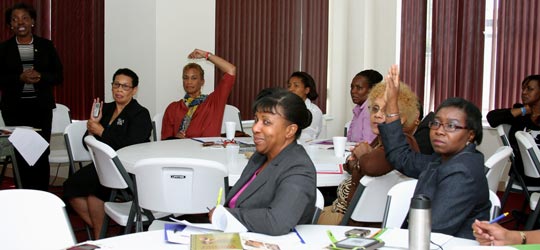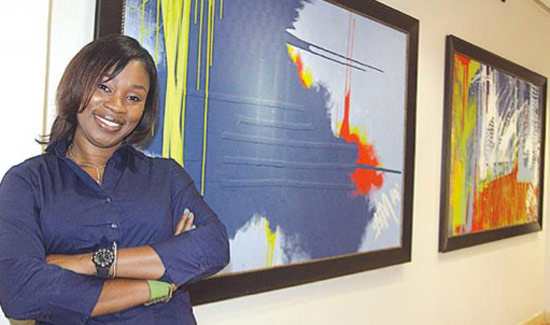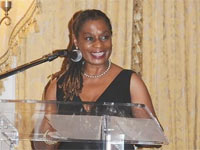
NASSAU, BAHAMAS — The Bahamas has submitted its first national report to the United Nations Committee on the Elimination of Discrimination against Women (CEDAW).
CEDAW, an expert body established in 1982, is composed of 23 experts on women’s issues from around the world.
The Committee’s mandate is very specific: it watches over the progress for women made in those countries that are the States parties to the 1979 Convention on the Elimination of All Forms of Discrimination against Women.
A country becomes a State party by ratifying or acceding to the Convention and thereby accepting a legal obligation to counteract discrimination against women. The Committee monitors the implementation of national measures to fulfil this obligation.
The Bahamas ratified the Convention on October 6,1993.
During an April 26, 2012, workshop organised by the Bureau of Women’s Affairs on CEDAW and Gender Dimensions of HIV in the Caribbean, Professor Barbara Bailey, CEDAW Committee Member/Rapporteur, who was one of the facilitators, explained that countries who ratify the Convention are supposed to submit a report within one year of ratification and then thereafter every fours years.
The report has to cover national action taken to improve the situation of women and is presented to the CEDAW Committee by Government representatives.
The Bureau held the workshop for individuals working in the Government agencies that have a part to play in gathering information for the report, as well as civil society organisations that have an interest in women’s issues and creating equality in society.
The purpose of the workshop was to augment government capacity to develop a more HIV-sensitive approach to CEDAW reporting, implementation and monitoring.
It was also geared toward strengthening the capacity of women’s organisations, particularly women’s rights organisations and organisations of women living with and affected by HIV, human rights organisations, HIV organisations, and other relevant social society partners to more effectively integrate HIV into CEDAW reporting and follow-up.
Lastly, the workshop strengthened the capacity of governmental and non-governmental partners to engage issues of HIV more consistently in their work on promoting women’s rights and gender equality.
Also facilitating the workshop were Janine Moussa, UNDP Consultant and Gabrielle Henderson, Program Specialist UN Women, based in the Caribbean office in Barbados.
Ms Moussa explained the importance of having civil society at the workshop. “Civil Society and Non Governmental Organisations have an opportunity to send their own reports based on their assessment on how the Government is doing and the Committee would usually take this under advisement.”
Professor Bailey said the Committee has already reviewed The Bahamas’ written report, and any matter the Committee wanted clarification on has been addressed.
However, a Bahamian delegation will formally go to New York in July to discuss and defend the report.
“The Bahamian representatives will appear before what we call two meetings: a three-hour block in the morning and a two-hour block in the afternoon, where we engage in what we call the constructive dialogue,” Professor Bailey explained.
“The structure of the constructive dialogue is that first of all the country is allowed half an hour to make a statement and that gives them an opportunity to update information, because there is always a time lag between the submission of a report and when they actually come before the committee.”
According to the CEDAW website, while in discussions with the Government officials, CEDAW experts comment on the report and obtain additional information.
This procedure of actual dialogue, developed by the Committee, has proven valuable because it allows for an exchange of views and a clearer analysis of anti-discrimination policies in the various countries.
The Committee also makes recommendations on any issue affecting women to which it believes the States parties should devote more attention.
Professor Bailey said, “At the end of the meeting, concluding observations are drafted, which look at the positives as well as the gaps in implementation and makes some recommendations for further action.
“That is then sent back to the State and that then should form the basis for the further implementation of the Convention,” she added.
By Llonella Gilbert
Bahamas Information Services



